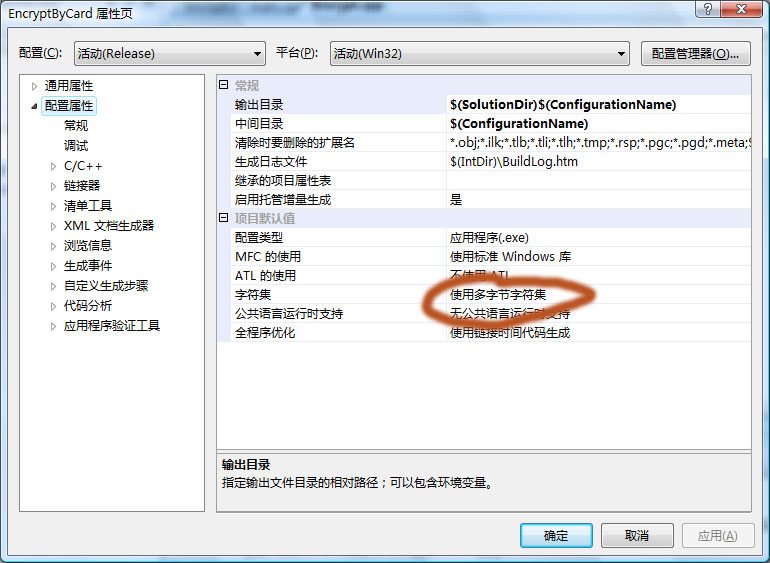不能将参数 1 从“CString”转换为“const char *”
你在vs2008中默认字符集是UNICODE字符集,CString中字符以wchar_t的形式来存储的,而不是char。你在项目-》属性-》配置属性 有一个字符集,可以改字符集,改成多字节字符集就行了。
我在VC的unicode项目中使用如下代码时,提示错误“error C2664: "gethostbyname": 不能将参数 1 从"CString"转换为"const char *"”。
CString host;
lpHost = gethostbyname(host);
最快的解决办法:
Since this function requires Ansi string, I think you have to convert your Unicode on
CString yourString = . . .;
CStringA ansiString = yourString;
gethostbyname(ansiString);
I hope it works.
See also: CT2A macro, WideCharToMultiByte function.
其他办法:
CString,char*,const char *,LPCTSTR 的转换
如何将CString类型的变量赋给char*类型的变量
1、GetBuffer函数:
使用CString::GetBuffer函数。
char *p;
CString str="hello";
p=str.GetBuffer(str.GetLength());
str.ReleaseBuffer();
将CString转换成char * 时
CString str("aaaaaaa");
strcpy(str.GetBuffer(10),"aa");
str.ReleaseBuffer();
当我们需要字符数组时调用GetBuffer(int n),其中n为我们需要的字符数组的长度.使用完成后一定要马上调用ReleaseBuffer();
还有很重要的一点就是,在能使用const char *的地方,就不要使用char *
2、memcpy:
CString mCS=_T("cxl");
char mch[20];
memcpy(mch,mCS,20);
3、用LPCTSTR强制转换: 尽量不使用
char *ch;
CString str;
ch=(LPSTR)(LPCTSTR)str;
CString str = "good";
char *tmp;
sprintf(tmp,"%s",(LPTSTR)(LPCTSTR)str);
4、
CString Msg;
Msg=Msg+"abc";
LPTSTR lpsz;
lpsz = new TCHAR[Msg.GetLength()+1];
_tcscpy(lpsz, Msg);
char * psz;
strcpy(psz,lpsz);
CString类向const char *转换
char a[100];
CString str("aaaaaa");
strncpy(a,(LPCTSTR)str,sizeof(a));
或者如下:
strncpy(a,str,sizeof(a));
以上两种用法都是正确地. 因为strncpy的第二个参数类型为const char *.所以编译器会自动将CString类转换成const char *.
CString转LPCTSTR (const char *)
CString cStr;
const char *lpctStr=(LPCTSTR)cStr;
LPCTSTR转CString
LPCTSTR lpctStr;
CString cStr=lpctStr;
将char*类型的变量赋给CString型的变量
可以直接赋值,如:
CString myString = "This is a test";
也可以利用构造函数,如:
CString s1("Tom");
将CString类型的变量赋给char []类型(字符串)的变量
1、sprintf()函数
CString str = "good";
char tmp[200] ;
sprintf(tmp, "%s",(LPCSTR)str);
(LPCSTR)str这种强制转换相当于(LPTSTR)(LPCTSTR)str
CString类的变量需要转换为(char*)的时,使用(LPTSTR)(LPCTSTR)str
然而,LPCTSTR是const char *,也就是说,得到的字符串是不可写的!将其强制转换成LPTSTR去掉const,是极为危险的!
一不留神就会完蛋!要得到char *,应该用GetBuffer()或GetBufferSetLength(),用完后再调用ReleaseBuffer()。
2、strcpy()函数
CString str;
char c[256];
strcpy(c, str);
char mychar[1024];
CString source="Hello";
strcpy((char*)&mychar,(LPCTSTR)source);



 浙公网安备 33010602011771号
浙公网安备 33010602011771号